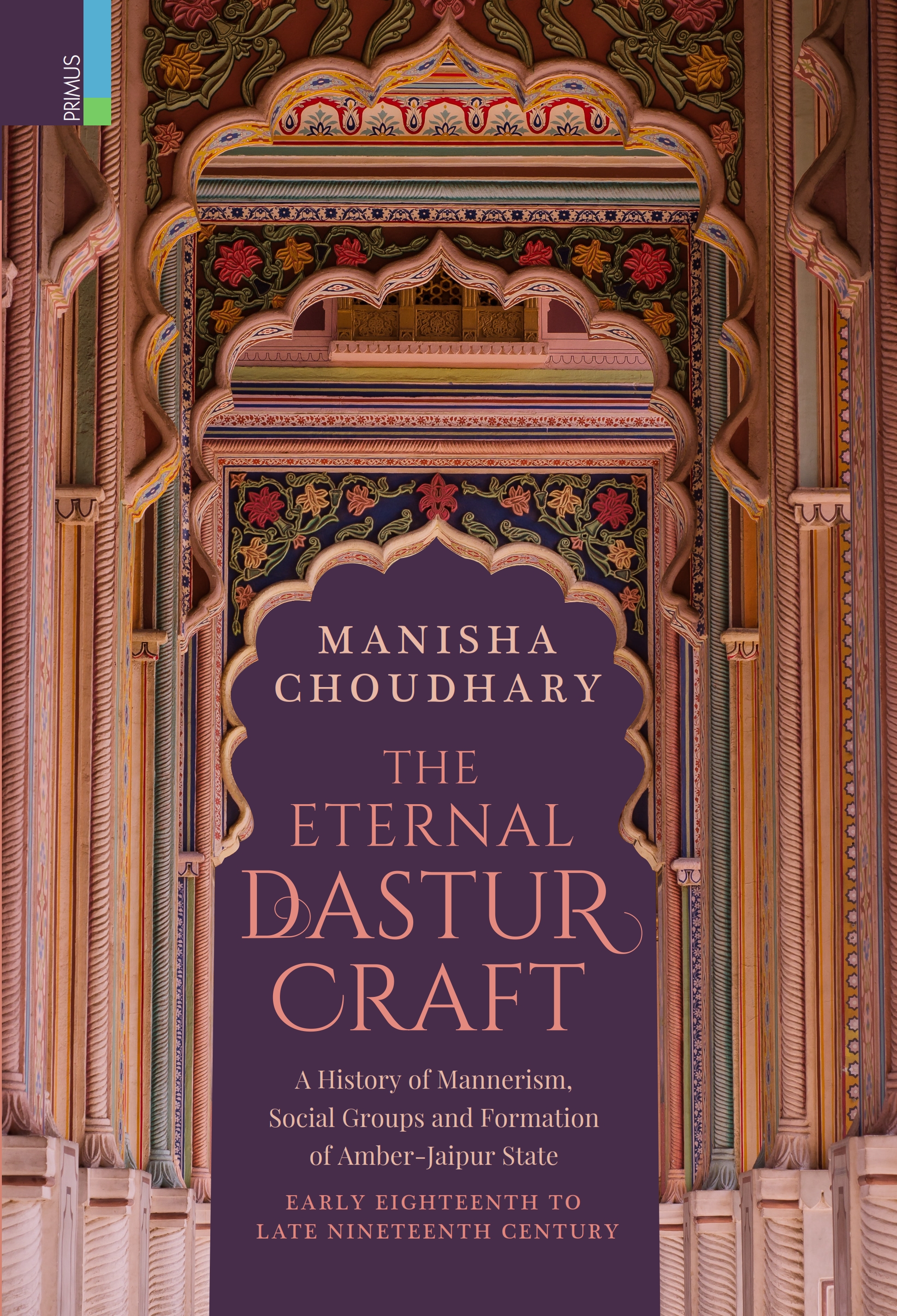
The Eternal Dastur Craft: A History of Mannerism, Social Groups and Formation of Amber-Jaipur State, Early Eighteenth to Late Nineteenth Century
AUTHOR: Manisha Choudhary
| HB ₹995 . $43.95 . £36.95 |
||
INFORMATION
- AUTHOR: Manisha Choudhary
- HB ISBN : 978-93-90022-49-6
- Year: 2020
- Extent: 288
- Discount available on checkout
- Usually dispatched within 3 to 5 working days.
- Forthcoming
Rituals—loosely defined as symbolically meaningful action—pervaded medieval society, up and down the social strata. Royal courts were a constant arena of ritual movements. Who was positioned higher than whom, who sat where, who exchanged what with whom, whose hand turned, a gift rendered and a counter gift returned, all these are suggestive of the language of gestures and indicative of the power and delicacy of rituals.
The Eternal Dastur Craft is a study of the Rajlok, Khojas of the state and the political and religious dignitaries and protocol applied to them in the court of the Jaipur State from early eighteenth to late nineteenth century. While appearing in court, the protocol laid out for different social groups depended on the status of the individuals and their castes. Interestingly, in this limited sphere also, the state accommodated nearly all the sections, clans and castes in the court. Being attached to the court, political and religious groups became representative of the court and exercised political pressure.
Overtly, social transformation and mannerisms dictated court protocol, and this volume highlights the civilizing process and history of mannerisms in the State of Jaipur during the eighteenth and nineteenth centuries, concentrating on the influential personalities who participated in the Jaipur Darbar.
Manisha Choudhary teaches at the Department of History, University of Delhi, and specializes in the history of medieval India and Rajasthan. She has explored the social and economic contributions of the Banjara community in precolonial states in her book Trade, Transport and Tanda: Shifting Identities of the Banjaras (2018). She has also published Delhi: A Concise History (2020). Her project, ‘The depiction of multi-faceted lifestyles in the bhiti-chitrakari of Setho ka Ramgarh and Nawalgarh havelis: A study into popular knowledge system and role of traders’ was funded by the Research and Development Grant awarded by the University of Delhi. She has also been a Fellow at the Indian Institute of Advanced Study, Shimla.




